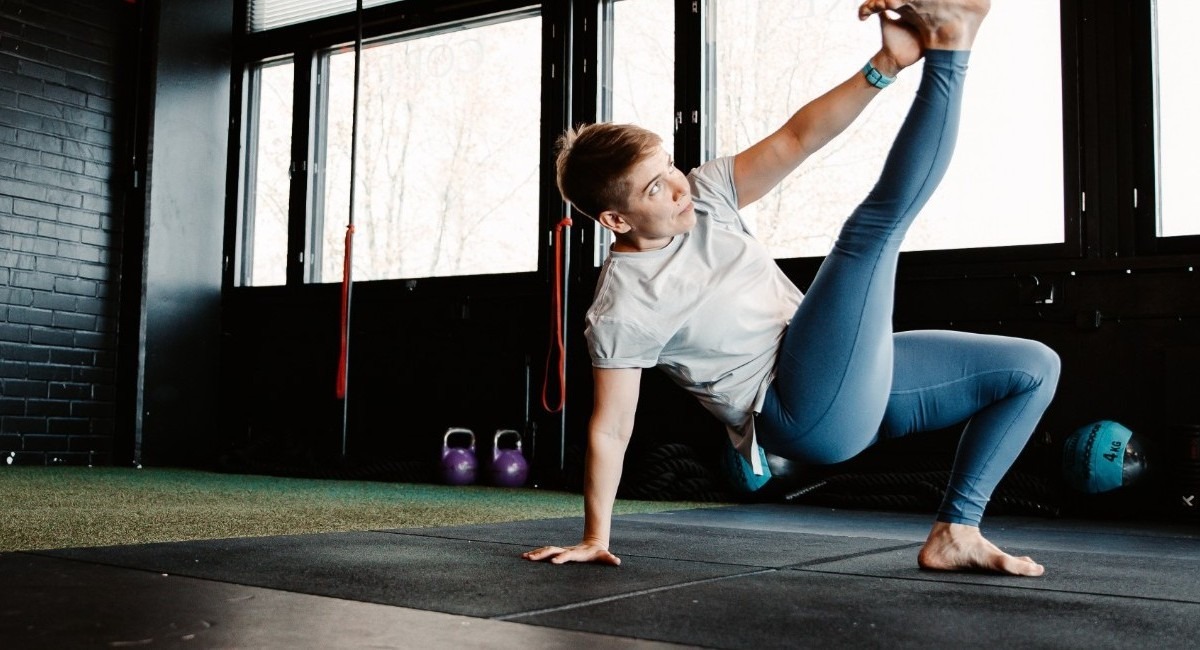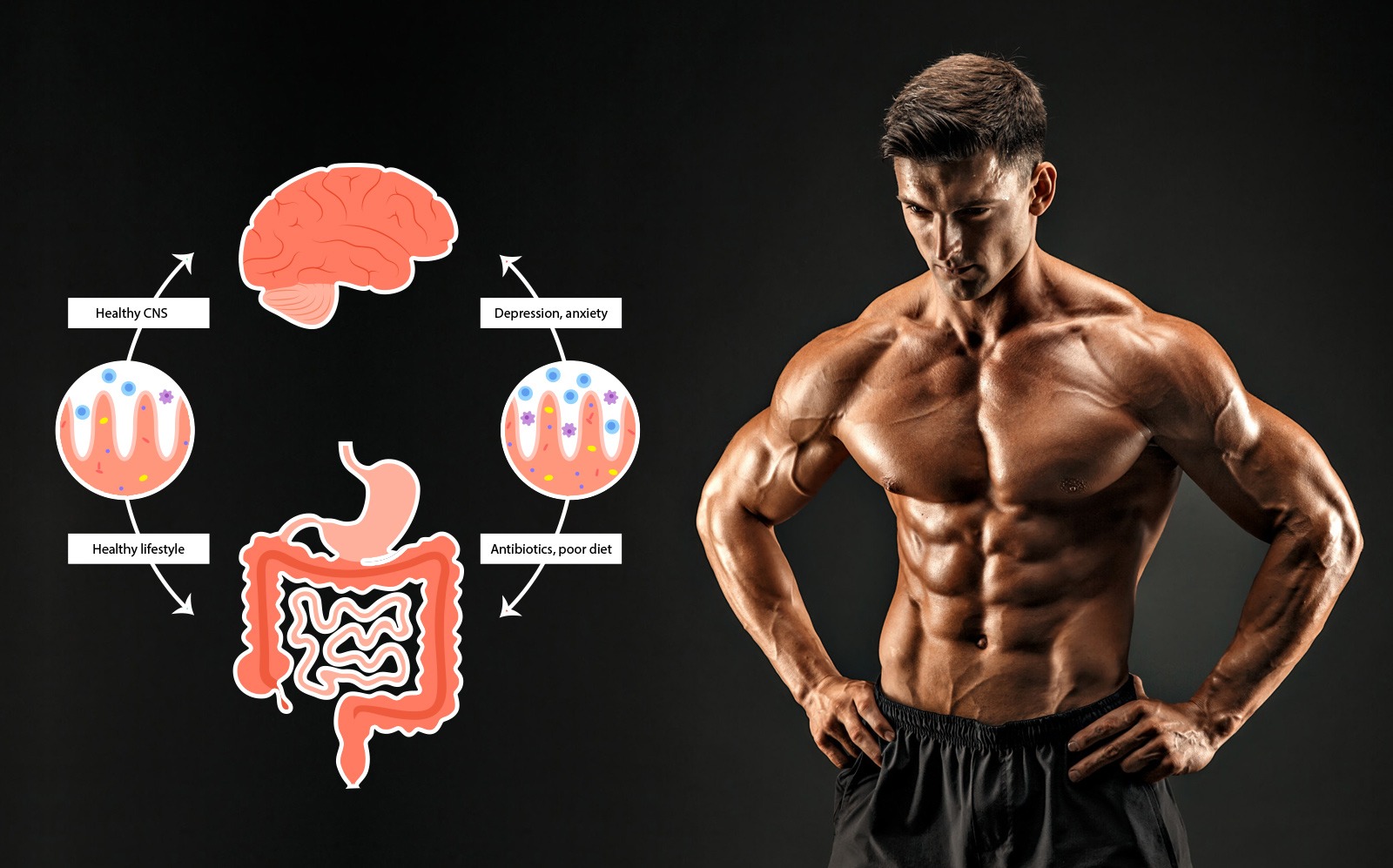
Maintaining a Fit Body Without Gym Dependency
Maintaining a fit body without gym dependency is possible with consistent exercise and a healthy lifestyle. Bodyweight exercises, outdoor activities, and a balanced diet can support muscle tone and cardiovascular health. Incorporating regular movement throughout the day, such as walking or cycling, further contributes to fitness. Sleep, mindfulness practices, and tracking progress also play key roles in sustaining a fit body. With dedication and the right routine, a gym isn't essential for stayi
💪 Fitness Guru
41 min read · 18, Apr 2025

Introduction
In today's fast-paced world, staying fit is a priority for many, but the idea of going to the gym regularly can feel overwhelming for some. Whether due to time constraints, financial considerations, or simply a preference for a more flexible routine, many people are looking for ways to maintain a fit body without relying on the gym. The good news is that achieving and maintaining fitness doesn’t have to be confined to a gym environment.
In this article, we will explore various ways to stay in shape, focusing on home-based exercises, outdoor activities, and lifestyle changes that can help you build strength, improve cardiovascular health, and maintain a toned body—no gym required. Maintaining a fit body without relying on the gym is not only possible but can be just as effective, and often more enjoyable. A combination of home workouts, outdoor activities, and a well-balanced diet can keep your body healthy, toned, and energized. The key is consistency and creativity in how you approach your fitness journey. Regular physical activity doesn’t require fancy equipment or a gym membership. Simple bodyweight exercises like squats, lunges, push-ups, and planks can engage various muscle groups and build strength over time. These exercises can be done in the comfort of your living room, backyard, or even in a park, making them convenient and accessible. For cardiovascular health, activities like walking, running, cycling, or swimming provide great alternatives to gym-based cardio machines. A brisk walk or jog in the morning can work wonders for your cardiovascular system and mental well-being. Additionally, outdoor activities like hiking, playing sports, or dancing can be great ways to stay fit while enjoying nature or socializing. Strength training doesn’t always require weights; resistance bands, water bottles, or even your own body weight can provide ample resistance to help tone and sculpt muscles. Yoga and Pilates are excellent low-impact options that can improve flexibility, balance, and core strength. Practicing these regularly can help with posture, mobility, and relaxation. Another great way to stay fit is through daily movement. Make an effort to move throughout the day, even if it's as simple as taking the stairs instead of the elevator, walking around during breaks, or stretching after long periods of sitting. This helps keep the body active and prevents the stiffness or soreness that often comes from being sedentary. It's also important to focus on nutrition. A well-balanced diet plays a significant role in maintaining a fit body. Eating a variety of whole foods like fruits, vegetables, lean proteins, and healthy fats ensures that your body gets the nutrients it needs to fuel physical activity and promote muscle recovery. Proper hydration is equally essential; water supports digestion, energy levels, and overall health. Avoiding processed foods and excessive sugar can help maintain healthy body composition and reduce inflammation, which can hinder fitness progress. Sleep is another crucial component of maintaining a fit body without the gym. Getting enough rest allows the body to recover from physical activity, repair muscles, and regenerate energy. A consistent sleep routine ensures that you are well-rested and able to perform at your best during physical activities. Mental health plays a major role in physical fitness as well. Reducing stress through mindfulness, meditation, or simply spending time with loved ones can improve overall well-being and contribute to maintaining a fit body. It's not just about physical health; it's also about feeling good mentally and emotionally. Staying motivated is one of the biggest challenges when working out outside of a gym setting. One way to stay on track is to set clear, realistic goals and track your progress over time. Celebrating small victories, whether it’s completing a certain number of push-ups or going for a longer run, can provide the motivation to keep going. It’s also helpful to create a routine that incorporates both physical and mental benefits. For example, starting the day with a few minutes of meditation followed by a 20-minute bodyweight workout can set a positive tone for the rest of the day. Finding a fitness buddy can also help keep you accountable and make exercise more enjoyable. Whether it’s a friend, family member, or even an online workout partner, sharing the experience can boost motivation and create a sense of community. If you're someone who enjoys variety, exploring different types of workouts can be beneficial. You could mix up activities like kickboxing, cycling, yoga, or even martial arts, all of which can be done at home or outdoors without gym equipment. Another option is to take advantage of fitness apps or online videos, many of which offer free resources and workout routines that cater to various fitness levels. When trying to stay fit without a gym, it’s essential to listen to your body. Overexertion can lead to injuries, so it's important to give yourself time to recover, especially when you're doing high-intensity exercises or trying something new. Consistency is key, but balance is essential. It’s also important to challenge yourself, but not at the expense of your health. Gradually increasing the intensity or duration of your workouts will help you build endurance and strength over time. Finally, don’t forget to have fun with your fitness journey. The more you enjoy the process, the more likely you are to stick with it long term. Trying new activities, setting personal challenges, or simply appreciating the progress you make, no matter how small, can make the whole experience more rewarding. In summary, maintaining a fit body without dependency on a gym is completely achievable with the right mindset and approach. By focusing on bodyweight exercises, outdoor activities, balanced nutrition, and mental well-being, you can stay fit, healthy, and motivated. The freedom to explore various fitness routines and the joy of not being tied to a gym schedule can make your fitness journey more sustainable and enjoyable, allowing you to take control of your health in a way that suits your lifestyle.
The Importance of Consistency in Fitness
Whether at the gym or at home, the key to maintaining a fit body is consistency. Regular exercise, no matter the form, is essential for promoting cardiovascular health, building strength, and enhancing overall well-being. It’s important to find a routine that fits into your lifestyle and to stick with it, so you can continue to enjoy the long-term benefits of fitness.
Consistency doesn’t necessarily mean hours of strenuous activity every day. Even short, regular workouts can be incredibly effective for keeping your body fit and healthy. What matters most is committing to some form of physical activity regularly.
Home-Based Workouts for Strength and Toning
You don’t need fancy gym equipment to build and maintain strength. There are countless bodyweight exercises that can be done at home, requiring no more than a small space and a little motivation. Some of the most effective bodyweight exercises include:
- Push-ups: A great exercise for toning the chest, arms, and shoulders.
- Squats: Excellent for strengthening the legs and glutes.
- Planks: Help to engage the core, improving stability and posture.
- Lunges: Focus on the legs and glutes while improving balance.
- Burpees: A full-body exercise that works on strength, endurance, and agility.
These exercises can be modified to suit your fitness level, and by progressively increasing the repetitions or adding variations, you can continue to challenge yourself. Additionally, using household items like water bottles or backpacks as makeshift weights can further intensify the workout.
Outdoor Activities to Boost Fitness
If you prefer to exercise outside, there are plenty of options that don’t require a gym. Nature offers a variety of opportunities to stay active while enjoying fresh air and sunshine:
- Running or Jogging: One of the most effective ways to boost cardiovascular health. It’s an easy and free way to get in shape, whether you’re running through your neighborhood or hitting local trails.
- Cycling: Whether you’re cycling around the city or on mountain trails, cycling is a great full-body workout that enhances leg strength and endurance.
- Hiking: For those who enjoy the outdoors, hiking is an excellent way to build muscle, increase stamina, and enjoy nature at the same time.
- Yoga or Pilates in the Park: Many people find it helpful to practice yoga in nature, where the calm surroundings enhance the experience and increase focus. Pilates also strengthens the core, improves posture, and increases flexibility.
- Swimming: If you have access to a pool or a natural water body, swimming is a fantastic low-impact workout that targets the entire body, providing both cardio and strength benefits.
Outdoor activities not only improve physical fitness but can also have positive effects on mental health, reducing stress and promoting overall well-being.
Functional Fitness and Daily Activities
Staying fit doesn’t always have to come from structured workouts. Functional fitness involves exercises that mimic everyday movements, improving strength, balance, and flexibility in ways that translate directly to daily life. Many everyday activities can provide a functional workout:
- Walking: Taking the stairs instead of the elevator, walking to run errands, or simply going for a daily walk can contribute significantly to your overall fitness.
- Carrying Groceries: Lifting and carrying heavy items activates the muscles in your arms, legs, and core, providing an effective strength workout.
- Gardening or Yard Work: Activities like raking leaves, shoveling snow, or planting can provide a good workout, improving strength and endurance.
- Cleaning and Housework: Vacuuming, mopping, and scrubbing the floors are all physically demanding tasks that contribute to muscle endurance.
The idea is to make the most of your daily routine by incorporating movement and making activities that you already do more physically engaging. This way, fitness becomes an integrated part of your lifestyle rather than a chore that you have to schedule separately.
Incorporating Mobility and Flexibility Exercises
Maintaining flexibility and mobility is just as important as building strength and cardiovascular fitness. Stretching and mobility exercises help improve joint flexibility, reduce the risk of injury, and increase overall body awareness. Some easy-to-do exercises include:
- Dynamic Stretching: Stretching while in motion helps increase blood flow to muscles and prepares the body for physical activity.
- Static Stretching: Holding stretches for a period of time after exercise helps improve flexibility and relax muscles.
- Foam Rolling: Foam rolling can target specific muscle groups to reduce muscle tightness and improve range of motion.
Incorporating these exercises into your routine ensures that your muscles and joints remain mobile and flexible, reducing the risk of injury and improving overall movement.
Nutrition and Hydration for Fitness
Exercise alone is not enough to maintain a fit body. Proper nutrition and hydration are essential components of any fitness regimen. A well-balanced diet that provides the necessary nutrients to fuel your body, support recovery, and maintain muscle health is critical.
- Protein: Important for muscle repair and growth, protein should be included in every meal, especially after a workout.
- Healthy Fats: Include sources of healthy fats like avocados, nuts, and olive oil to support overall health and hormone regulation.
- Carbohydrates: A necessary energy source for exercise and daily activity. Choose complex carbs like whole grains, fruits, and vegetables.
- Hydration: Water is essential for maintaining energy levels, supporting muscle function, and aiding in recovery. Make sure to stay hydrated throughout the day, particularly before and after exercise.
Proper nutrition and hydration ensure that your body has the energy it needs to perform and recover effectively.
Mental Health and Motivation
Staying fit without the gym isn’t just about physical exercise—it’s also about maintaining mental health and motivation. Finding ways to stay inspired and committed to your fitness routine is essential. Here are some tips for staying motivated:
- Set Realistic Goals: Whether it’s improving endurance, strength, or flexibility, having clear and achievable goals helps maintain focus and motivation.
- Track Progress: Keep a fitness journal or use apps to track your workouts and progress. Seeing improvements over time can be a great motivator.
- Find a Workout Buddy: Having a friend or family member to exercise with can make workouts more fun and hold you accountable.
- Variety is Key: Mix up your routine to keep things interesting. Try new activities, take different routes for your runs, or explore various home workouts to keep boredom at bay.
Mental health plays a huge role in staying consistent with your fitness routine. A positive mindset can make all the difference in maintaining a regular fitness practice.
Conclusion
Maintaining a fit body without the gym is not only possible, but it can also be enjoyable and fulfilling. By incorporating a variety of activities into your daily routine—whether at home, outdoors, or through functional fitness—you can stay strong, healthy, and in shape. Remember that consistency, nutrition, and motivation are key components of a successful fitness journey. With the right approach, staying fit can be seamlessly integrated into your lifestyle, regardless of whether or not you set foot in a gym.
Q&A Section
Q1. Can you stay fit without going to the gym?
Ans:- Yes, staying fit without the gym is absolutely possible. Incorporating bodyweight exercises like push-ups, squats, lunges, and planks can help maintain strength and muscle tone.
Q2. What are some effective home workout alternatives?
Ans:- Alternatives like yoga, Pilates, cycling, running, or even brisk walking outdoors can keep you fit. Resistance bands and dumbbells can also be used to enhance bodyweight exercises.
Q3. How can a healthy diet support fitness without gym workouts?
Ans:- A balanced diet rich in whole foods like fruits, vegetables, lean proteins, and whole grains supports fitness goals. Eating in moderation ensures your body stays fueled for daily activities.
Q4. Is it necessary to work out every day to stay fit?
Ans:- No, consistency is key but daily workouts aren’t necessary. 3-4 times a week of varied exercises can be just as effective for maintaining fitness without overexertion.
Q5. Can outdoor activities like walking or cycling help maintain fitness?
Ans:- Yes, outdoor activities like walking, jogging, or cycling are great for cardiovascular health and muscle tone, and they can easily fit into your routine without gym equipment.
Q6. How does staying active throughout the day contribute to fitness?
Ans:- Small activities such as taking the stairs, gardening, or walking during breaks can keep the body active, improving circulation, metabolism, and muscle endurance.
Q7. Can bodyweight exercises be as effective as gym workouts?
Ans:- Yes, bodyweight exercises can be very effective for building strength, muscle endurance, and flexibility. They can be varied to target different muscle groups and provide a full-body workout.
Q8. How important is sleep for maintaining fitness without the gym?
Ans:- Sleep is crucial for muscle recovery and overall well-being. Quality sleep helps restore energy levels, reduces stress, and supports metabolic health, all of which contribute to fitness.
Q9. Can mindfulness activities like meditation support physical fitness?
Ans:- Yes, mindfulness practices like meditation reduce stress, improve focus, and promote a healthy mental state, which indirectly supports physical fitness by encouraging better lifestyle choices.
Q10. How can I track my fitness progress without a gym?
Ans:- Fitness progress can be tracked through simple methods like measuring body metrics, taking progress photos, or using fitness apps that track steps, calories burned, or heart rate.
Similar Articles
Find more relatable content in similar Articles

Fitness Lessons from Wild Animals – Move Like Nature Intende..
“Discover how observing wild a.. Read More

The Science of Breathwork: Fitness Beyond Muscles...
Exploring how conscious contro.. Read More

How Chefs Stay Fit in High-Pressure Kitchens...
Working in a high-pressure kit.. Read More

Microbiome and Muscle: Gut Health as a Hidden Fitness Tool...
Unlock the hidden potential of.. Read More
© 2024 Copyrights by rFitness. All Rights Reserved.